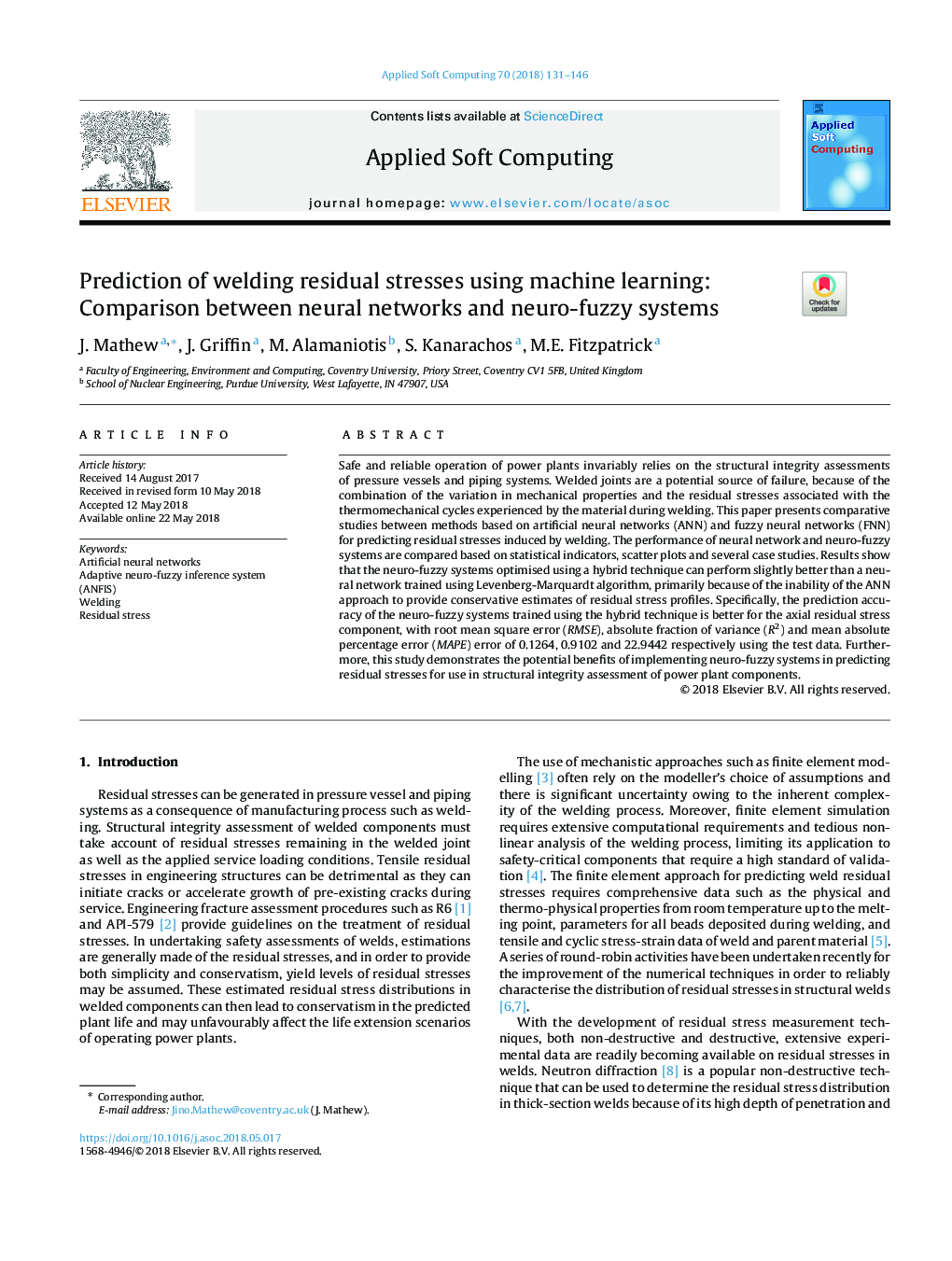| کد مقاله | کد نشریه | سال انتشار | مقاله انگلیسی | نسخه تمام متن |
|---|---|---|---|---|
| 6903360 | 1446990 | 2018 | 16 صفحه PDF | دانلود رایگان |
عنوان انگلیسی مقاله ISI
Prediction of welding residual stresses using machine learning: Comparison between neural networks and neuro-fuzzy systems
ترجمه فارسی عنوان
پیش بینی تنش های باقی مانده جوشکاری با استفاده از یادگیری ماشین: مقایسه شبکه های عصبی با سیستم های عصبی فازی
دانلود مقاله + سفارش ترجمه
دانلود مقاله ISI انگلیسی
رایگان برای ایرانیان
کلمات کلیدی
موضوعات مرتبط
مهندسی و علوم پایه
مهندسی کامپیوتر
نرم افزارهای علوم کامپیوتر
چکیده انگلیسی
Safe and reliable operation of power plants invariably relies on the structural integrity assessments of pressure vessels and piping systems. Welded joints are a potential source of failure, because of the combination of the variation in mechanical properties and the residual stresses associated with the thermomechanical cycles experienced by the material during welding. This paper presents comparative studies between methods based on artificial neural networks (ANN) and fuzzy neural networks (FNN) for predicting residual stresses induced by welding. The performance of neural network and neuro-fuzzy systems are compared based on statistical indicators, scatter plots and several case studies. Results show that the neuro-fuzzy systems optimised using a hybrid technique can perform slightly better than a neural network trained using Levenberg-Marquardt algorithm, primarily because of the inability of the ANN approach to provide conservative estimates of residual stress profiles. Specifically, the prediction accuracy of the neuro-fuzzy systems trained using the hybrid technique is better for the axial residual stress component, with root mean square error (RMSE), absolute fraction of variance (R2) and mean absolute percentage error (MAPE) error of 0.1264, 0.9102 and 22.9442 respectively using the test data. Furthermore, this study demonstrates the potential benefits of implementing neuro-fuzzy systems in predicting residual stresses for use in structural integrity assessment of power plant components.
ناشر
Database: Elsevier - ScienceDirect (ساینس دایرکت)
Journal: Applied Soft Computing - Volume 70, September 2018, Pages 131-146
Journal: Applied Soft Computing - Volume 70, September 2018, Pages 131-146
نویسندگان
J. Mathew, J. Griffin, M. Alamaniotis, S. Kanarachos, M.E. Fitzpatrick,
